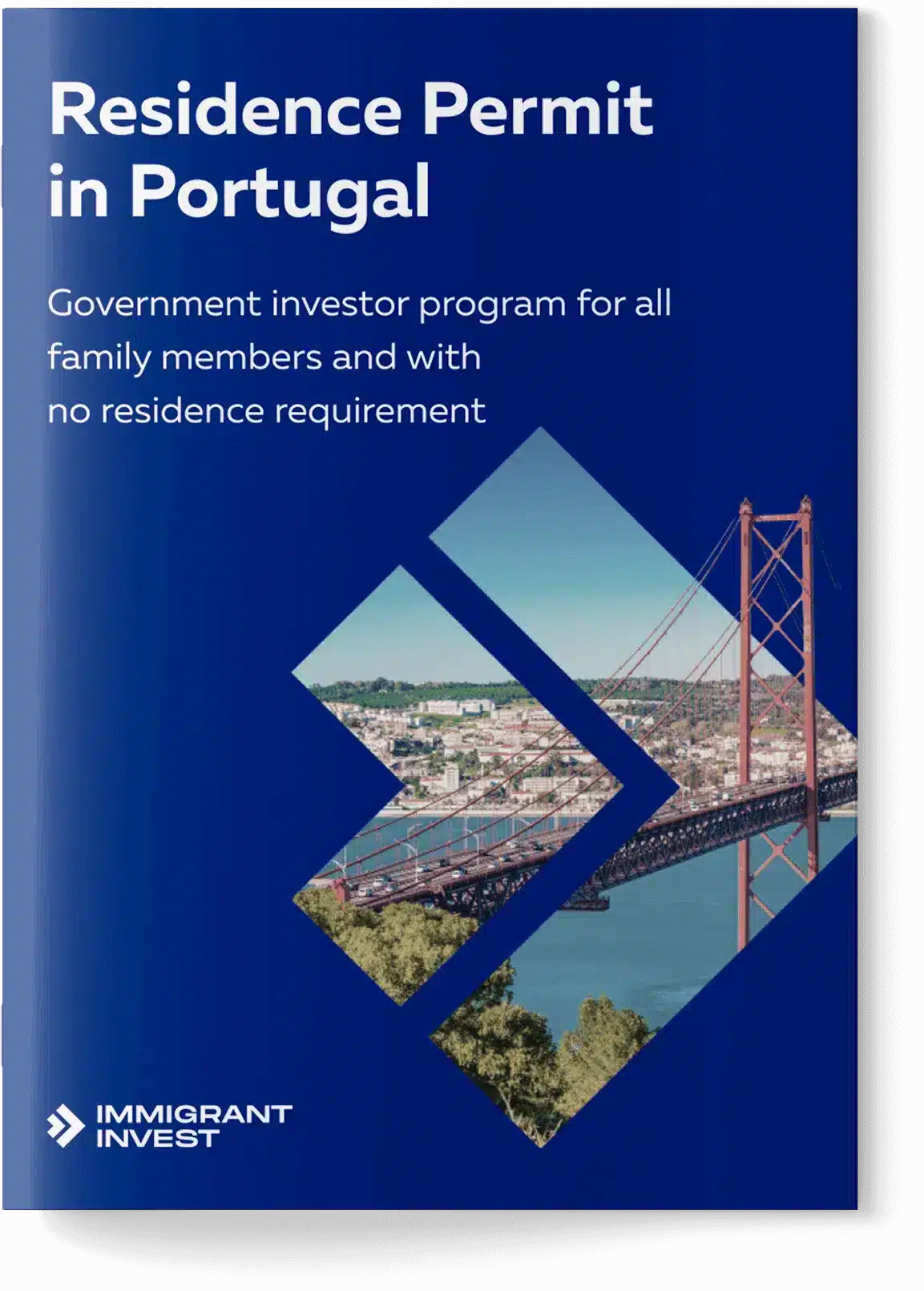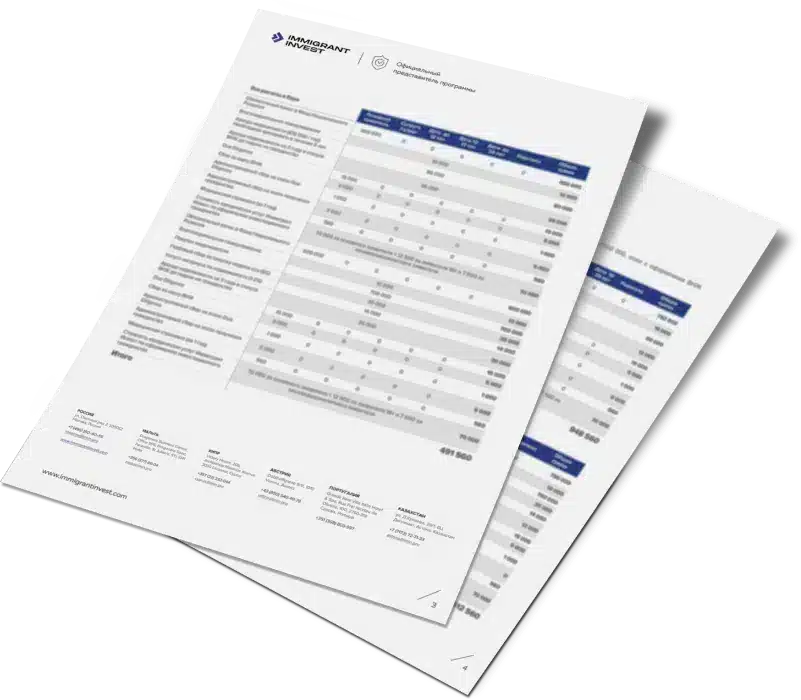What is the NHR program?
Developed in 2009, the NHR program is designed to attract qualified professionals, retirees, and foreign residents with stable incomes. To apply for the NHR status, one should not be a tax resident in Portugal for 5 years before the application.
Non-habitual Residence (NHR) means obtaining tax residency in Portugal and paying less taxes on income and capital gains for 10 years.
To qualify for the NHR regime, applicants must meet the 183 days a year residency requirement.
The Portuguese government has announced the conclusion of the NHR tax program in 2024. Existing Non-habitual residents in Portugal will retain their advantages throughout their 10-year term. New applicants must submit their applications by December 31, 2023. Those with valid residence visas and who aim to become tax residents in Portugal by December 31, 2023, can apply for the NHR until March 31, 2024.
Incentivised Tax Status (ITS) is expected to replace the NHR tax regime and may provide a more limited array of tax benefits to eligible individuals and professionals. The benefits include a fixed 20% tax rate for ten years and a 50% tax exemption on professional income, capped at €250,000, for a period of five years. The initiative was announced on October 10, 2023.
What is the difference between being a resident of Portugal and having NHR status?
The Portugal residence permit confirms a foreigner's right to reside within the country. The application is submitted through the AIMA, Agency for Integration, Migrations and Asylum of Portugal. It is considered for 4—5 months.
Applicants receive a plastic card once approved, which confirms their right to reside temporarily or permanently. The most common reasons for obtaining a residence permit in Portugal are work, study, business, and investment.
The NHR is an income tax regime that reduces your tax liability and, in some cases, provides you with a tax exemption. The status, for example, entitles holders to pay income tax at 20% rather than the progressive scale of up to 48% and exempts them from taxes on worldwide income. Those who wish to apply for an NHR must also apply for tax residency and have a valid Portugal residence permit.
What are the main reasons for obtaining Non-habitual Resident (NHR) status in Portugal?
Portugal's NHR tax regime offers tax advantages to foreigners moving to the country, to investors who have acquired Portugal residence permits by property investments, and to Portuguese nationals who have not lived in the country for the past five years.
For individuals who receive income in Portugal or abroad, the NHR regime offers benefits or exemptions from paying Portuguese income taxes:
- for employed persons;
- for the self-employed;
- for pensioners;
- for those making a profit outside Portugal: dividends, interest and royalties, capital gains, and income from the rental of real estate outside Portugal.
Obtaining an NHR does not provide a full tax exemption on all foreign sources of income. To qualify for the tax exemption, each source of income and country of source are taken into account.
A flat income tax rate of 20% on the income of qualified professionals who work in Portuguese companies or earn money in Portugal as self-employed. Without NHR status, income tax is levied on a progressive scale ranging from 14.5% to 48%.
A flat rate of income tax of 10% on pension payments from other countries. The rate applies if the recipient received Non-habitual Resident status after 1 April 2020. Tax residents in Portugal without Non-habitual Resident status pay pension income tax on a progressive scale ranging from 14.5% to 48%.
Portugal does not tax income or pension payments if taxes are paid in the source country. In order to avoid double taxation, make sure to check if Portugal has an agreement with that country.
Who can get Non-habitual Resident (NHR) status in Portugal?
In order to register as a Portugal Non-habitual Resident, applicants must meet the following requirements:
- be over 18 years;
- reside legally in Portugal;
- not have been a tax resident for five years before the date of application for NHR status.
Portugal residency. Applicants need to reside legally in Portugal, for example, on the basis of a D7 visa or a Golden Visa, if not an EU citizen. EU citizens can obtain this status on the basis of freedom of movement within the EU.
Tax residency. It is also necessary for applicants to become tax residents in Portugal. Any of the following criteria may qualify an applicant for tax residency in Portugal:
- to stay in Portugal for more than 183 days per year, consecutively or intermittently;
- if the period of residence is shorter, have a house as a permanent residence with the intention of residing and maintaining it;
- be a member of a ship crew or an aircraft crew on December 31, provided that the employers have their residence, headquarters or actual address in Portugal;
- perform public functions abroad for the Portuguese State.
Non-habitual residents must not have been tax residents of Portugal for five years before registration.
Additionally, applicants must obtain a Portuguese tax number (NIF) associated with their address in Portugal. They can then apply for NHR status. The NHR application must be submitted by March 31, inclusive of the year after the one in which you became a resident in the Portuguese territory.
Validity period. NHR benefits are granted for a 10-year non-renewable period. The period is calculated from the date your Portuguese tax number is registered with the tax authorities. Applicants can check this date on the Portal das Finanças.
Taxes under the NHR regime for employed and self-employed persons in Portugal
Income from employment and self-employment in Portugal is usually taxed on a scale of 14.5 to 48%. When you have NHR status, you are entitled to pay a flat 20% tax rate.
The standard income tax rate is more favourable for those earning less than €7,479 per year, as their income is taxed at a rate of 14.5%. Those with higher earnings will benefit from the NHR tax regime.
The NHR status includes certain tax advantages, such as a lower income tax rate of 20% if the activity is considered a high-value-added activity.
High-value-added activities for the NHR regime
| Professional activity | Portuguese professional сodes |
| Managing directors and executive directors of companies | 112 |
| Directors of administrative and commercial services | 12 |
| Directors of production and specialised services | 13 |
| Directors of hotels, restaurants, trade and other services | 14 |
| Physicists, mathematicians, engineers and related technicians | 21 |
| Doctors | 221 |
| Doctors of dentistry and dental care | 2261 |
| University and college professors | 231 |
| Information and communication technology (ICT) professionals | 25 |
| Authors, journalists and linguists | 264 |
| Creative and performing arts professionals | 265 |
| Scientific and engineering technicians and mid-level professionals | 31 |
| Information and communication technology technicians | 35 |
| Market-oriented skilled agricultural and livestock workers | 61 |
| Market-oriented skilled workers in forestry, fisheries and hunting | 65 |
| Skilled industrial, construction and crafts workers, including skilled metalworkers, metal workers, food processors, woodworkers, garment workers, craftsmen, printmakers, precision instruments makers, jewellers, craftsmen, electricians and electronic technicians, among others | 7 |
| Plant and machine operators and assemblers, namely plant and machine operators | 8 |
The above occupations require at least level 4 of the European Qualifications Framework or level 35 of the International Standard Classification of Education or five years of appropriate professional experience.
Portugal NHR pensioners' taxes
The Portuguese government declared a 10% tax on foreign pension income in 2020 as part of the National Housing Reform. Previously, foreign pension income was not taxed for NHR residents.
The NHR resident's pension income will be taxed at 10% if it comes from a country with which Portugal has a Double Taxation Agreement (DTA). The rule applies to pensions received from countries without a DTA but that are not blocklisted as tax havens. The tax rate for a country blocklisted as a tax haven ranges from 14.5 to 48%.
NHR blocklisted countries, territories, and regions
| American Samoa | Dominica | Liechtenstein | Saint Lucia |
| Anguilla | Falkland Islands or Malvinas | Maldive Islands | Saint Pierre and Miquelon |
| Antigua and Barbuda | Fiji Islands | Marshall Islands | Samoa |
| Aruba | French Polynesia | Mauritius | San Marino |
| Ascension Island | Gambia | Monaco | Seychelles |
| Bahamas | Gibraltar | Montserrat | Solomon Islands |
| Bahrain | Grenada | Nauru | St Vincent and the Grenadines |
| Barbados | Guam | Netherlands Antilles | Sultanate of Oman |
| Belize | Guyana | Northern Mariana Islands | Svalbard (2) |
| Bermuda | Honduras | Niue Island | Swaziland |
| Bolivia | Hong Kong | Norfolk Island | Tokelau |
| British Virgin Islands | Isle of Man | Pacific Islands | Trinidad and Tobago |
| Brunei | Jamaica | Palau Islands | Tristan da cunha |
| Cayman Islands | Jordan | Panama | Turks and Caicos Islands |
| Channel Islands (1) | Kingdom of Tonga | Pitcairn Island | Tuvalu |
| Christmas Island | Kiribati | Porto Rico | United Arab Emirates |
| Cocos (Keeling) | Kuwait | Qatar | United States Virgin Islands |
| Cook Islands | Labuan | Qeshm Island | Vanuatu |
| Costa Rica | Lebanon | Saint Helena | Yemen Arab Republic |
| Djibouti | Liberia | Saint Kitts and Nevis | Uruguay |
2 — Spitsbergen Archipelago and Bjornoya Island.
Taxes under the NHR regime for other income abroad
Non-habitual Resident status means the following income is tax-free in Portugal:
- dividends;
- interest;
- royalties;
- capital gains;
- income from the rental of property abroad;
- income from employment and self-employment in another country.
Income is not taxed in Portugal if it is received from a country that has a Double Tax Agreement (DTA) with Portugal. The purpose of a Double Taxation Agreement is to avoid double taxation between two or more countries.
The standard tax rate in Portugal for dividends, interest, royalties, capital gains, and rental property abroad is 28%. Self-employment and self-employment abroad are taxed at a progressive rate from 14.5 to 48%.
For the holders of NHR status, however, the rate for these incomes is 0%.
The benefit does not apply if income comes from a country that has been blocklisted as a tax haven. In this case, tax rates rise to 35%.
How to apply for Non-habitual Resident (NHR) status in Portugal?
NHR tax regime applicants need a Portugal residence permit and tax residency status before applying. Afterwards, they have the option of applying for NHR status themselves or through an authorised representative.
Portugal residence permits can be obtained in a variety of ways, for example, by working or being self-employed in Portugal, opening a business, studying at a Portuguese university, having a permanent income abroad, or through the Portugal Golden Visa program.
Depending on the purpose of the residence permit, the process can take anywhere from 2 to 16 months.
Obtaining a Portuguese tax number (NIF). You can apply for a tax number in person at a tax office or online. It can also be obtained through a tax representative in Portugal. The tax representative can be a lawyer, a tax consultant or an accountant. In this case, the Portuguese registration address of the tax representative must be indicated on the application form.
The process takes about half an hour, and the applicant receives a certificate or a plastic card of their choice.
Applying for NHR status. You can apply for NHR status in person or through a tax representative in Portugal. Once you are registered as a tax resident in Portugal, you will need to request a password through Portal das Finanças by choosing the option "Register-se" and completing the online form. Applicants for the non-habitual resident status must prove that they have fulfilled the requirements to be considered non-residents in Portugal for the five years prior to the application.
How does the Portugal Golden Visa help you to get Non-habitual Resident (NHR) status?
The first step in applying for NHR status is to obtain a tax residency status and a tax number in Portugal. You need to reside for 183 days in Portugal or buy a home there to qualify for the NHR program.
A residence permit is required for foreigners to achieve this goal. Applicants are granted this permit when applying for a job in a Portuguese company, studying at a Portuguese university, or marrying a Portuguese citizen. People with high incomes can also obtain a residence permit by investment.
A Portugal Golden Visa offers five options for investors:
- €250,000 for cultural development or heritage reconstruction;
- €500,000 for investment funds;
- €500,000 in a business that creates five or more jobs;
- €500,000 for research;
- opening a Portuguese company that creates at least ten jobs.
Frequently asked questions
Non-habitual Residence (NHR) offers qualified individuals the opportunity to become tax residents in Portugal, paying income and capital gains taxes at lower rates for 10 years.
The Portuguese Government has developed the Non-habitual resident (NHR) program mainly to support foreign nationals who plan to live in the country or buy property here. The program allows them to reduce taxes on income in Portugal to 20% or 0% if the income is earned in other countries. The NHR status is particularly convenient for investors, pensioners, and people with high salaries or incomes abroad.
NHR status is valid for 10 years without the right to renew. Once it expires, the individual starts paying taxes in Portugal at the standard rates:
- 14.5 to 48% for income tax;
- 28 to 35% for dividends;
- 28% for capital gains from the sale of shares.
To apply for NHR status, you must meet the following conditions:
- not be a tax resident in Portugal for five years before registration;
- have a Portugal residence permit;
- obtain a Portuguese Tax Identification Number (NIF) linked to an address in Portugal;
- apply for NHR status.
You can apply for NHR status in person or through your tax representative in Portugal via Portal das Finanças.
To apply for NHR status, applicants must be legally resident in Portugal. For example, on the basis of a D7 visa or a Golden Visa if you are not an EU citizen. EU citizens can obtain this status on the basis of freedom of movement within the EU.
Persons who wish to apply for NHR status must not have been tax residents in Portugal for five years prior to registration.
Applicants first apply for tax residency in Portugal and receive a tax number. They then apply for NHR status themselves or with the assistance of an authorised representative via Portal das Finanças.
Standard tax rates for individuals in Portugal are as follows:
- 14.5 to 48% income tax for tax residents;
- 28% income tax for tax non-residents;
- 28 to 35% for dividends;
- 28% for capital gains from the sale of shares;
- 11% for social charges
- 5% for stamp duty on the sale of a business or share;
- 10% for stamp duty on inheritance and gifts;
- 0.8% for stamp duty when buying a property.
Most taxes are levied at a flat rate, but personal income tax is levied at a progressive rate ranging from 14.5 to 48% for tax residents and 25% for tax non-residents.
In the NHR tax regime, income from employment and self-employment is taxed at 20%, pensioners receiving pensions abroad are taxed at 10%, and world income is taxed at 0%.
The Portugal residence permit confirms the right of a foreigner to reside within the country. The application is submitted through the AIMA, Agency for Integration, Migrations and Asylum of Portugal. It is considered for 4—5 months.
Applicants receive a plastic card once approved, which confirms their right to reside temporarily or permanently. The most common reasons for obtaining a residence permit in Portugal are work, study, D7 visa and investment.
People wishing to move to Portugal on various grounds can obtain a residence permit:
- The Portugal Golden Visa can be obtained by purchasing real estate, unit funds, or other investments;
- Individuals with permanent incomes outside Portugal are eligible for the D7 visa;
- Professionals interested in investing in innovative projects can apply for an HQA startup visa;
- Visas for students intending to study in Portugal;
- For individuals invited to work for Portuguese companies, a D1 visa is required.
To register as a tax resident in Portugal, you must obtain an NIF tax number. To do this, you will need a registered address in Portugal. You can apply in person, through an authorised representative at a tax office, or online.
In order to register as a Non-habitual Resident, applicants must meet the following requirements:
- be over 18 years;
- reside legally in Portugal;
- have tax residency status;
- not have been a tax resident for five years before the date of application.
You can apply for NHR status in person or through your tax representative in Portugal via Portal das Finanças.
Yes, you can. Tax residence does not change automatically. It is necessary to go to the tax office and submit an application to change your tax residency to Portuguese tax residency.
It is not necessary to change your tax residence. There is an obligation to pay taxes in Portugal, but tax rates may differ for tax residents and non-residents of Portugal. For example, individuals who are tax residents in Portugal pay income tax on a progressive scale from 14.5 to 48%. For non-residents, there is a flat rate of 25%.
The NHR tax program in Portugal will conclude in 2024. Existing NHR status holders will retain their advantages throughout their 10-year term. New applicants must submit their applications by December 31, 2023. Those with valid residence visas and who aim to become tax residents in Portugal by December 31, 2023, can apply for the NHR until March 31, 2024.






